Favorites, predictions and pet peeves: Our critics on an eventful year in books
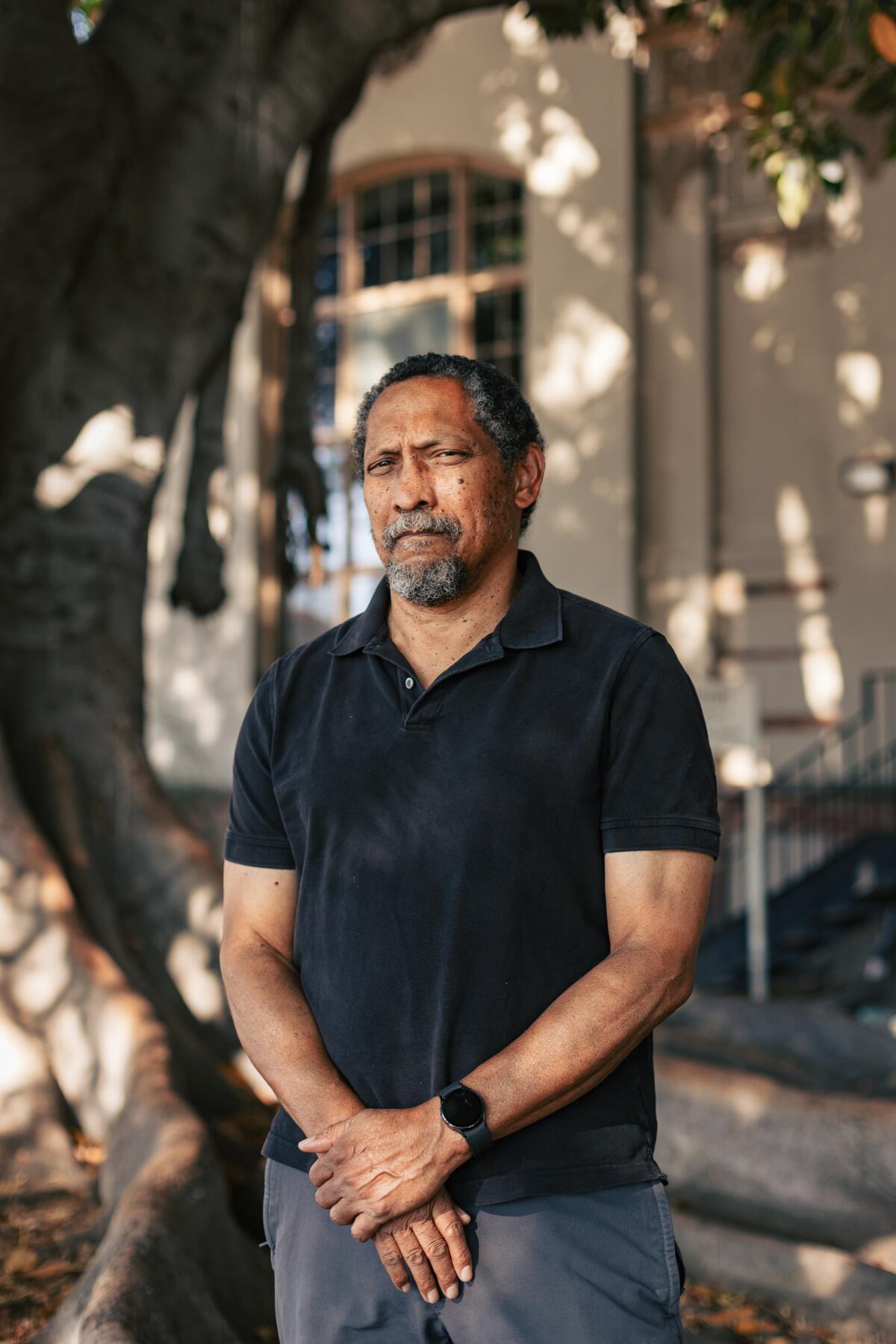
Times contributing book critics ponder 2023’s trends, favorites and pet peeves. Plus 2024 predictions, final lists, notable stories and a Happy New Year
- Share via
Good morning, happy holidays and welcome back to the L.A. Times Book Club newsletter.
I’m Boris Kachka, the books editor at the Los Angeles Times, and I’m looking forward to 2024 — not only because I have to work on New Year’s Eve.
The turn of the calendar brings a new publishing season and, soon enough, the leadup to the best book event of the year. In the waning days of the December lull, I reached out to Times contributing critics for closing thoughts on 2023 and predictions for the year ahead.
You’re reading Book Club
An exclusive look at what we’re reading, book club events and our latest author interviews.
You may occasionally receive promotional content from the Los Angeles Times.
How would you summarize the year in books? Did any trends pop out to you?
Mark Athitakis: Publishers can’t predict the future, but they’re smart enough to know that a big election year like 2024 sucks the air out of the room in terms of what writers will get attention. So 2023 seemed designed to get ahead of the political chatter and deliver enough celebrity memoirs to get us through the whole of the next presidential administration. Jada! Harry! Britney! Barbra! If this stuff is comfort food, publishers seemed eager to wheel us into triple-bypass surgery.
Hillary Kelly: First, I’m going to point out a 2023 trend that I loathe. Too many “smaller” books, by which I mean books from people who aren’t Zadie Smith or Ann Patchett, were utterly neglected at their time of publication, only for critics to discover them when it was time for year-end lists. Critics, stop grappling to cover the people who are already on top and work harder to raise up the other deserving writers. (And editors, accept our damn pitches.)
David L. Ulin: In much of the work that most moved me, genre lines continued to be blurred. I’m not talking about autofiction (which I love) but hybrid work: Ben Lerner’s “The Lights,” Brandon Shimoda‘s “Hydra Medusa,” Sofia Samatar and Kate Zambreno‘s “Tone.” These books are aware of genre but don’t take it for granted. I love when artists reconfigure their own boundaries and the boundaries of their work.
Bethanne Patrick: There is, without a doubt, an uptick in books about climate change — along with books about appreciating/learning from the natural world while we still have it. And this might not surprise anyone, but 2023 is the year that audiobooks took over. A certain site now puts the audio version of a book first in search results. Audiobook sales are skyrocketing. Anecdotally, people I know who didn’t read much and/or never had time to read are finding that, with headphones on, they’re listening to a few dozen books per year.
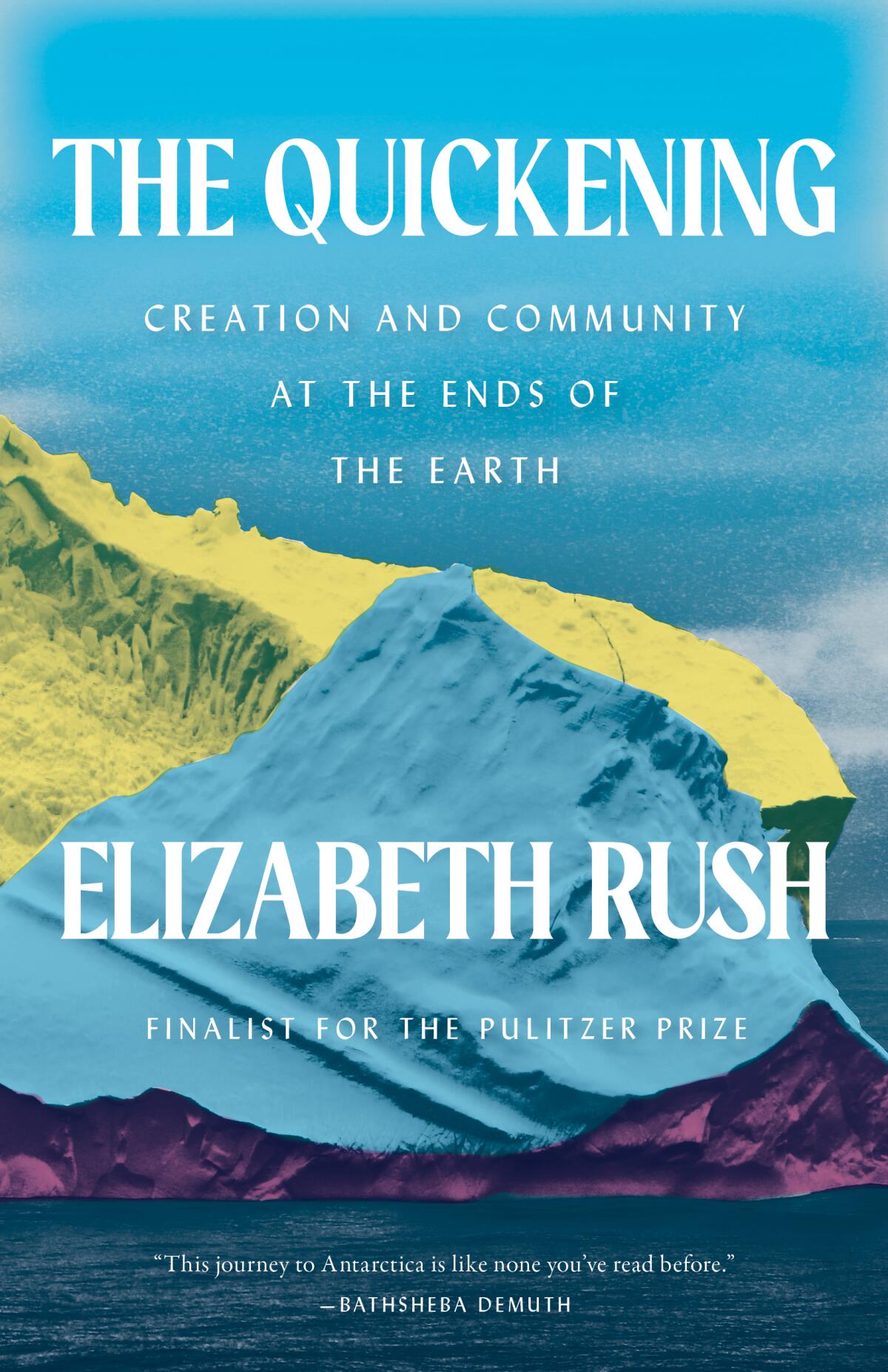
Lorraine Berry: For me, 2023 marked a paradigm shift in our ways of thinking about “change,” and it coincided with — and fueled — a shift in my ways of being. My anger and anxiety about creeping fascism with its multiple tentacles had, at times, left me overwhelmed by various problems’ enormity. What could I do as an individual?
The book that wrestled with those issues and became the final impetus for change turned out to be Elizabeth Rush’s “The Quickening.” And in a number of memoirs and novels, I saw a turning away from competitive models in nature and culture to models of symbiosis and cooperation. I couldn’t make the world give up fossil fuels, but I could fix what was in front of me. I spent the summer transforming invasive weeds into a pollinators’ garden, volunteering with an animal charity and plugging into a network of other people doing the same. Along the way, I became more calm and more focused.
What’s your favorite quote from a book in 2023?
HK: From Adam Thirwell’s “The Future Future”: “All language was disgusting, said Marta. But people seemed to adore it. It was like how everyone loved reading these novels in letters. As if everything existed in order to end up in words! Whereas most feelings, or at least the most interesting, avoided language entirely.”
MA: From Brandon Taylor‘s “The Late Americans”: “But no one had a happy childhood. No one had a good life. Human pain existed in a vast supply, and people took from it like grain from a barn. There was pain for you and pain for you and pain for you — agony enough for everyone.”
DU: From Ben Lerner’s “The Lights”: “Form is always the answer to the riddle it poses.”
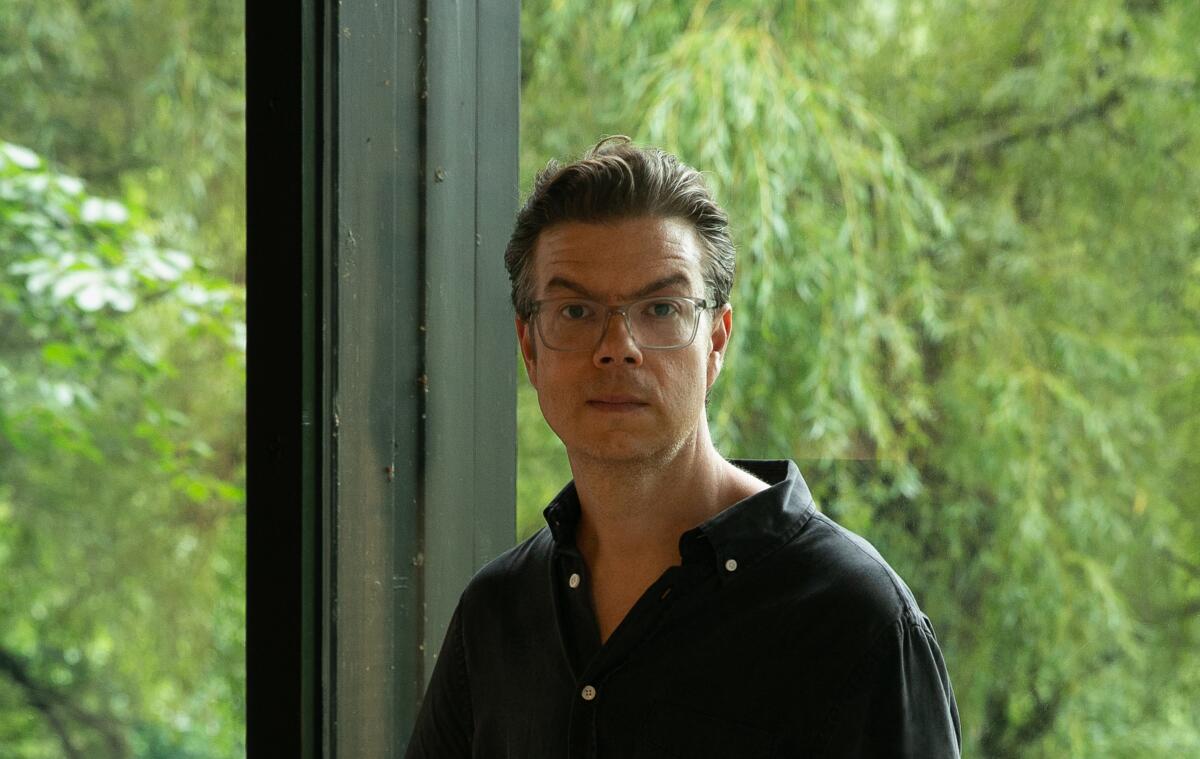
What are you most excited about in 2024?
HK: The era of the Brooklyn Bro has ended. In 2024, we are getting new work from Rachel Khong, Clare Sestanovich, Rachel Cusk, Julia Phillips and Yoko Ogawa, whose novel “The Memory Police” — which is about the slow dissolution of ordinary life under fascism — ought to be required reading for government employees. I’m already setting aside a weekend for her latest, “Mina’s Matchbox,” out at summer’s end.
BP: 2024 will bring new novels by Kiley Reid, Percival Everett, Claire Beams, Hari Kunzru, Julia Phillips, Tommy Orange, Claire Messud, Kaveh Akbar — no shortage of riches for a fiction devotee. It’s an election year. Nothing is going to be easy. But those of us who care about having a culture will be gathering more, using our voices collectively. These aren’t my words, but I hope we all remember: Free societies read freely.
DU: What I’m looking forward to the most is the election being over. In regard to books, some early titles stand out to me, including Percival Everett’s “James,” “The Collected Poems of Delmore Schwartz,” Maggie Nelson‘s “Like Love.”
MA: We’re sick of hearing about ChatGPT. Next year, we’ll likely grow even sicker of it. I’m sure we’ll see more stories about how artificial intelligence is capable of delivering ever more credible facsimiles of literary fiction, even full novels. (Prediction: Next year, one prestige short-story outlet will suffer the embarrassment of being pranked into unknowingly accepting an AI-generated submission.) But AI can’t innovate. So I’d like to think next year launches an era where writers will experiment more audaciously with form, narrative, voice — whatever it takes to keep us one step ahead of the robots.
How about you? Did books change the way you think or live in 2023? Did you read a sentence you’ll never forget? What do you expect in the year ahead? Please send thoughts to bookclub@latimes.com.
Next Book Club

Dean Koontz’s upcoming novel, “The Bad Weather Friend,” is about a Southern California real estate agent out to get revenge against unseen forces ruining his life. The supernatural thriller is a shout-out to Koontz’s home region from an author who is never short on plots. He has published more than 100 books, raking in Bible-tier sales of more than 500 million copies.
Until the pandemic hit, he did it all — 10 hours a day, 6 days a week on a Compaq computer with no internet access — from a home office in a sprawling estate in Newport Coast. He’s since moved to Irvine and made some minor tech upgrades, but he still maintains a slightly monkish existence.
On Jan. 28, he will make a rare public appearance at the L.A. Times Book Club. Discussing his long and lucrative career and his new novel, which will be published Feb. 1, Koontz will be in conversation with Times assistant managing editor Samantha Melbourneweaver at UC Irvine. Get tickets here, where you can also share any questions, comments and favorite Koontz book (or send an email to bookclub@latimes.com).
The Week(s) in Books
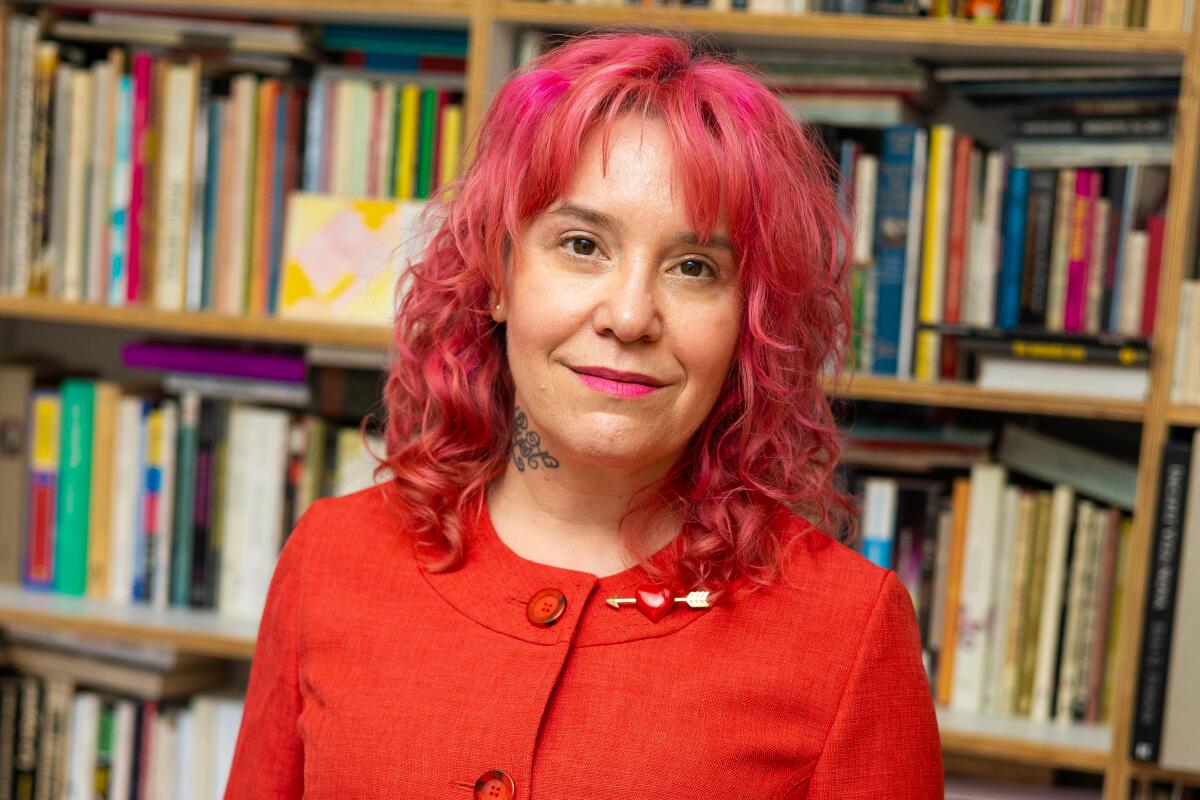
A new L.A. press on the horizon. Michelle Tea has been the impresario of a growing queer literary scene for decades, first in the Bay Area — where she created the Drag Queen Story Hour — and more recently in Los Angeles. Now she’s starting a new indie publishing house, Dopamine, under the roof of the legendary avant garde press Semiotext(e). Times contributor Meredith Maran caught up with Tea on her new endeavor.
And a new bookstore in Florida, a state that could probably use a few more. Novelist Lauren Groff talked with Times staff writer Emily St. Martin about her plans to open a shop in her hometown of Gainesville — just as PEN America put out a new report on the corrosive effects of bans on authors’ reputations.
Writers stunned into silence. Times senior writer and novelist Jeffrey Fleishman reports from Jerusalem on how Israeli authors — including Etgar Keret and David Grossman — and TV writers are coping with the brutalities of the Israel-Hamas war. He finds a community grasping for the right response.
How to write a noir: According to David L. Ulin, former Times books editor and critic and author of the compact, pitch-dark new noir novel “Thirteen Question Method,” you’ve got to fall in love with the form, let it marinate and ditch your literary hangups. It also helps to move to L.A.
A few more year-end lists. Though the Times’ biggest book lists dropped earlier in the fall, a couple of shorter ones sneaked in at the tail end of gift-buying season — and there’s no time like the present to check them out. Times columnist Gustavo Arellano offered an idiosyncratic quartet of California memoirs. And over at De Los, author-illustrator Roxsy Lin had nine recommendations of Latinx-written books to read over the winter break.
Yet another Goodreads scandal. As staff writer Jessica Gelt reported, the drama continued over at the Amazon-owned book-review/reign-of-terror site. Cait Corrain, a fantasy author, lost her agent and her book deal for a forthcoming novel after she was caught “review-bombing” rival debut authors, many of them writers of color. On Dec. 11, she apologized and announced she’s going to rehab.
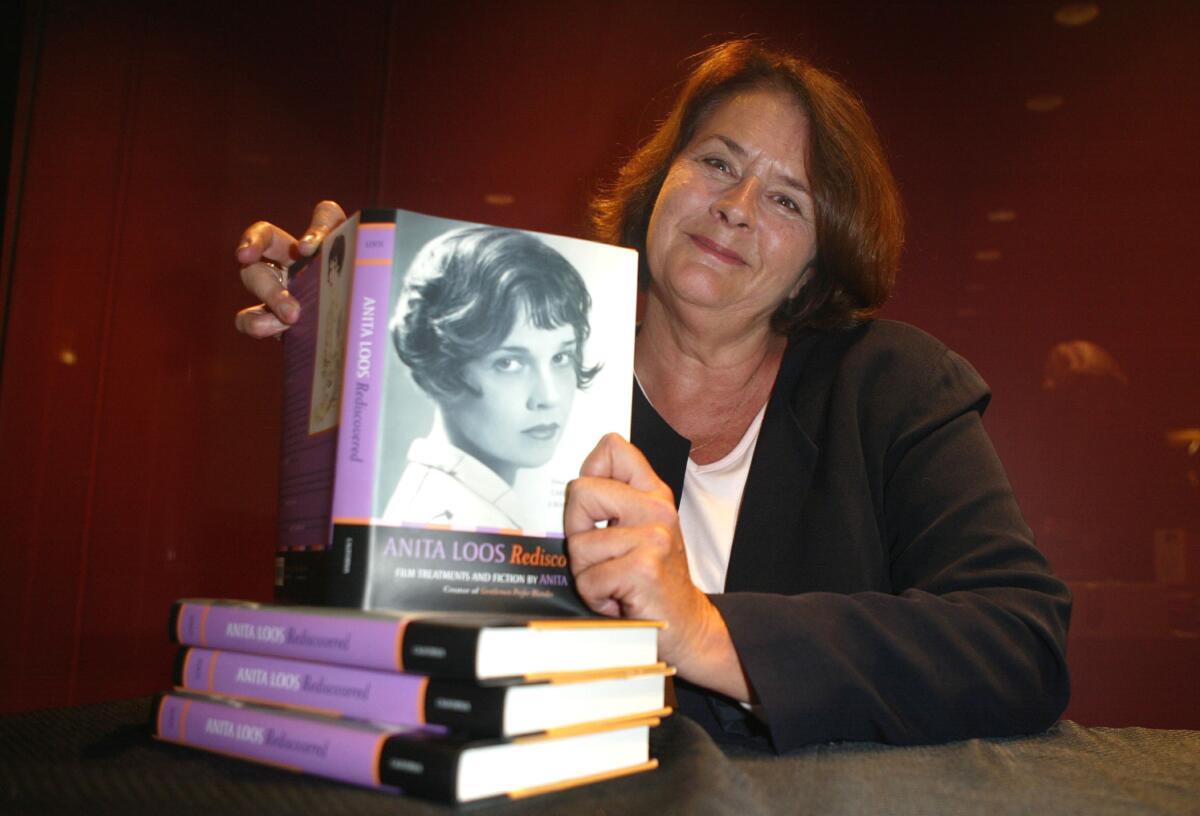
Passings. In December, Los Angeles lost two formidable forces in the book world and beyond. Ken Brecher, who was an anthropologist before going on to lead institutions ranging from the Mark Taper Forum to the Sundance Institute and, for 10 years, the Library Foundation of L.A. (the L.A. Library’s private nonprofit arm), died Dec. 11 at age 78. And Cari Beauchamp, a California political organizer who went on to write groundbreaking books on women in Hollywood and became a stalwart presence at the Times Festival of Books, died Dec. 14 at age 74.
Bookstore Faves
Every couple of weeks, we ask an L.A. bookseller what they’re selling and what they’re loving. This time: Sherri Gallentine, the head book buyer for Vroman’s Bookstore and Book Soup.

What’s flying off your shelves?
“The Creative Act” by Rick Rubin, “The Wager” by David Grann, “North Woods” by Daniel Mason, “The Bee Sting” by Paul Murray, “The Heaven and Earth Grocery Store” by James McBride, “Tom Lake” by Ann Patchett, “Demon Copperhead” by Barbara Kingsolver and “The Cookie That Changed My Life” by Nancy Silverton.
What are your customers asking for?
Books on the Israel-Hamas war and the history of the region; books on AI; fantasy recommendations for gifts.
What are you recommending and why?
“Chenneville,” by Paulette Jiles. It is my favorite novel of 2023; the writing is superb, and the story gets you right from the start. My husband and dad both read it and enjoyed it, so I think it can be recommended to a wide array of readers.
What are you looking forward to that isn’t out yet?
I’ve heard that Ina Garten’s memoir is coming out in the fall of 2024. I can’t wait to get my hands on a copy of that.
Sign up for our Book Club newsletter
Get the latest news, events and more from the Los Angeles Times Book Club, and help us get L.A. reading and talking.
You may occasionally receive promotional content from the Los Angeles Times.




